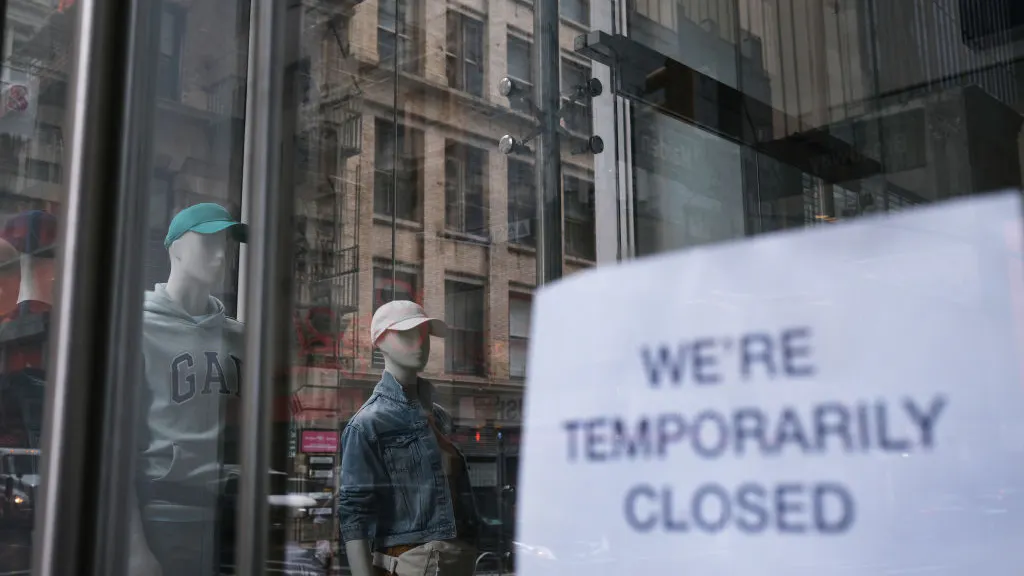A significant boost to unemployment insurance provided to people losing income during the coronavirus pandemic has resulted in roughly two-thirds of those workers making more without a job than with one.
Economists Peter Ganong, Pascal Noel and Joseph Vavra at the University of Chicago estimate that most workers recently added to unemployment rolls are receiving more money in weekly checks from the government than they were making at their jobs, according to their report. The disparity may lead to widespread economic consequences as employers attempt to restart small businesses that have been shut down for a month or more.
As part of the $2 trillion CARES Act President Trump signed into law on March 27, Congress approved an additional $600 a week in unemployment insurance be paid to those who lost their income because of the coronavirus and government-mandated closures of thousands of businesses. Lawmakers picked $600 because that would raise the average UI payment made in 2019 (about $370 a week) to equal the average salary someone lost before applying for unemployment (about $970 a week).
The average salary of UI recipients in 2019, though, is much higher than the median salary, according to the report.
“We find that 68% of unemployed workers who are eligible for UI will receive benefits which exceed lost earnings. The median replacement rate is 134%, and one out of five eligible unemployed workers will receive benefits at least twice as large as their lost earnings,” the researchers wrote.
Experts expected that most unemployed workers would make more on the boosted UI program than they were making at their jobs, but some experts were surprised that the number is estimated as high as it is.
“I think we all knew that some workers were going to be getting more than their original earnings,” the American Enterprise Institute’s Michael Strain told FiveThirtyEight. “I would not have guessed that it was quite this many workers, but I certainly think that it’s a completely plausible figure.”
The University of Chicago team said that while the program is causing problems for employers trying to lure many workers back to lower salaries, the problems don’t necessarily outweigh the benefits of the adjusted UI.
“It is important to note that the unemployed also lose health insurance and other non-wage compensation, and that there are public health benefits of staying home during a pandemic. High replacement rates can also encourage UI take-up and result in positive pecuniary externalities from greater spending,” the report said.
Business owners have already pointed out that the disparity between their pay-scales pre-pandemic and what their employees and former employees can now make on unemployment is frustrating employers’ attempts to bring staff back as states lift lockdown orders. Small businesses that applied for emergency federal loans to keep them afloat during forced shutdowns now face the question of whether they can pay back that loan if they cannot entice employees back to work, a condition of loan forgiveness in the aid program.
The Daily Wire, headed by bestselling author and popular podcast host Ben Shapiro, is a leading provider of conservative news, cutting through the mainstream media’s rhetoric to provide readers the most important, relevant, and engaging stories of the day. Get inside access to The Daily Wire by becoming a member.

.png)
.png)

